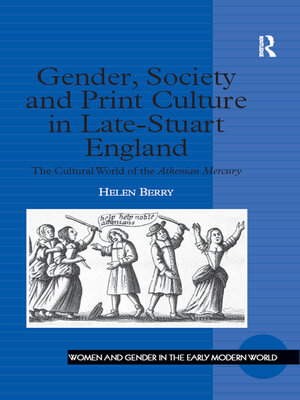Gender, Society and Print Culture in Late-Stuart England
ebook ∣ The Cultural World of the Athenian Mercury · Women and Gender in the Early Modern World
By Helen Berry

Sign up to save your library
With an OverDrive account, you can save your favorite libraries for at-a-glance information about availability. Find out more about OverDrive accounts.
Find this title in Libby, the library reading app by OverDrive.



Search for a digital library with this title
Title found at these libraries:
| Library Name | Distance |
|---|---|
| Loading... |
Focusing on a largely unknown type of popular print culture that developed in the late 1600s-the coffee house periodical-Helen Berry here offers new evidence that the politics of gender, far from being a marginal or frivolous topic, was an issue of general interest and wide-spread concern to the early modern reader. Berry's study provides the first full length analysis of John Dunton's Athenian Mercury (1691-97), an influential specimen of the coffee-house periodical genre, as well as the original question-and-answer publication which addressed both men's and women's issues in one journal. As the chapter headings in this book indicate, the topics addressed in the "agony column" of the Athenian Mercury-for example, the body, courtship, and sex-are of enduring interest across the centuries. Berry's study of this periodical provides new insights into the gendered ideas and debates that circulated among middling sorts in early modern England. An historical survey of the social effects of mass communication in the early modern period, this volume makes an important contribution to the ongoing study of how gendered ideas and values were communicated culturally, particularly beyond the milieu of elite groups such as the nobility and gentry. It argues that the mass media was from its infancy an important means of communicating powerful messages about gender norms, particularly among the middling sorts. The study will appeal not only to historians, women and gender studies scholars and literature scholars, but also to scholars of publishing history.







